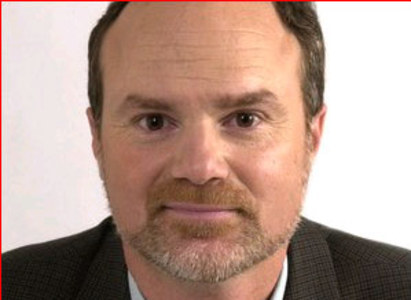The Globe and Mail laments so-called "new Quebec demands" after Premier Jean Charest announced he would push for Prime Minister Stephen Harper to deliver on his oft-repeated promise to limit Ottawa's spending power. "Does this push for more autonomy never cease?" asks the editorial board.
The answer to this last question is, "no."
In any federation, it is natural for provinces or states to seek to manage their own affairs (for example, California and the environment, Alberta and natural resources). It is also normal for the central government to define and try to achieve national goals. This creates a tension that may be tiresome for some, but is part and parcel of what a federation is. "Federal-provincial jostling" will cease only if Canada becomes a unitary state - or not a country at all.
I agree that sometimes Quebec's constant demands are as irritating as they are ill-founded. For instance, Parti Québécois leader Pauline Marois has asked for Ottawa to relinquish its jurisdiction over immigration in Quebec. An intriguing suggestion since the government of Quebec already selects all its immigrants, except for refugee claimants and family reunion cases. Ms. Marois's statement is typical of Quebec politicians' tendency to blame Ottawa for any problem that arises.
In the case of the spending power, however, this is not a "new demand," but a very old one that was never satisfied. Even staunch federalists, in and outside Quebec, have agreed that in a federation where each level of government is to be autonomous in its fields of jurisdiction, the central government should not be able to intrude solely because it has more money.
None other than Pierre Trudeau wrote that "governments may give donations only within the limits of the Constitution; and it is precisely these limits, stemming from the theory of federalism and defined by the Privy Council, that must be respected." Liberal Leader Stéphane Dion agrees that "the unilateral use of the federal spending power can undermine the provinces' ability to set priorities."
Mr. Dion was one of the architects of the Social Union Framework, signed by Ottawa and all provinces except Quebec in 1999. According to The Globe, this agreement "was an acceptable compromise." In fact, the framework does not limit Ottawa's spending power at all.
All it takes for it to launch a new social program in areas of provincial jurisdiction is the consent of a majority of provinces. Provinces that do not agree will receive financial compensation provided they put in place a similar program to meet the national objectives established by the federal government.
Let's say Ottawa decided higher education should be free for all and announced it was willing to pay half the bill to meet this national goal. Suppose Quebec, Ontario, Alberta and British Columbia found such an idea preposterous. Even though they represent 85 per cent of the population, Ottawa could put in place its new transfer with the support of the six remaining provinces. The dissident provinces might strongly disagree with Ottawa's "national objective," but still they would have to put up their own programs to pay all tuition fees. Otherwise, they would not receive any compensation.
Ottawa and the provinces should look at ways to limit the federal spending power without eroding the federal government's influence on the country's social development. With time and dialogue, they might come to understand that to frame - not abandon - the federal spending power will strengthen the federation, not weaken it. That is because in this area, as in others, clarity is always preferable.
Don't lose the federal spirit
Au tour des Canadians à ne pas comprendre le VRAI Canada de GESCA...

André Pratte878 articles
[une chronique intitulée « Tout est pourri » (critique de Anne-Marie Gingras) ->http://books.google.fr/books?id=EZWguAMXAtsC&pg=PA27-IA27&lpg=PA27-IA27&dq=pratte+Tout+est+pourri&source=bl&ots=MUti9NTQuH&sig=h2zgJlLgOg844j5ejxnUl4zH2_s&hl=fr&sa=X&ei=73RrT8a...
Cliquer ici pour plus d'information
[une chronique intitulée « Tout est pourri » (critique de Anne-Marie Gingras) ->http://books.google.fr/books?id=EZWguAMXAtsC&pg=PA27-IA27&lpg=PA27-IA27&dq=pratte+Tout+est+pourri&source=bl&ots=MUti9NTQuH&sig=h2zgJlLgOg844j5ejxnUl4zH2_s&hl=fr&sa=X&ei=73RrT8aQEqnh0QHuh4GyBg&ved=0CEEQ6AEwBQ#v=onepage&q=pratte%20Tout%20est%20pourri&f=false]
[Semaine après semaine, ce petit monsieur nous convie à la petitesse->http://www.pierrefalardeau.com/index.php?option=com_content&task=view&id=30&Itemid=2]. Notre statut de minoritaires braillards, il le célèbre, en fait la promotion, le porte comme un étendard avec des trémolos orwelliens : « La dépendance, c’est l’indépendance ». « La soumission, c’est la liberté ». « La provincialisation, c’est la vraie souveraineté ». « La petitesse, c’est la grandeur ». Pour lui, un demi-strapontin à l’Unesco est une immense victoire pour notre peuple. C’est la seule politique étrangère qu’il arrive à imaginer pour le peuple québécois. Mais cet intellectuel colonisé type n’est pas seul. Power Corp. et Radio-Cadenas en engagent à la poche.




















Laissez un commentaire Votre adresse courriel ne sera pas publiée.
Veuillez vous connecter afin de laisser un commentaire.
Aucun commentaire trouvé